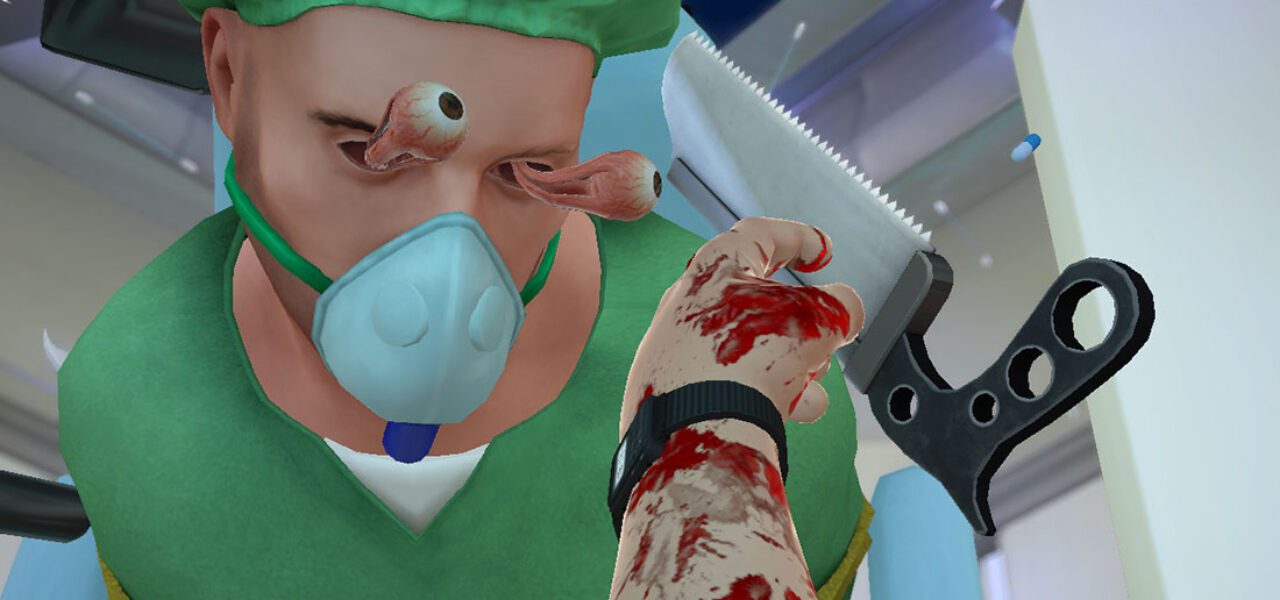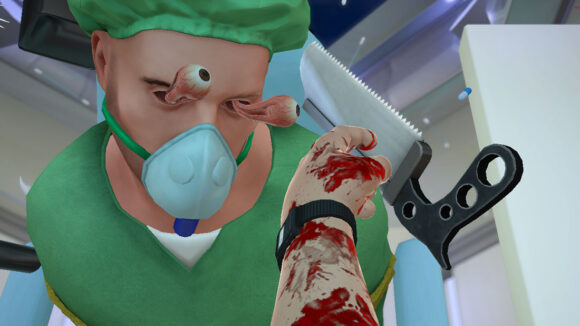

Bossa Studios Becomes First U.K. Studio To Offer Permanent Remote Work Option
Among the coronavirus stories with an ending yet to be written is the pandemic’s long-term impact on physical work spaces, including studios that produce animation, games, and visual effects. At this moment, many production studios are leaning toward hybrid models that incorporate work-from-home as well as the option to work in-house if deemed safe.
But what will studios look like after the pandemic eases? No one is quite sure.
Some companies though are already starting to plan for the post-coronavirus era. London-based game developer Bossa Studios became among the first game studios this week (if not the first) to offer workers the option to permanently work from home (WFH).
The producer of games like I Am Bread and Surgeon Simulator (pictured at top), Bossa will allow employees to either work remotely, work from its London office, or combine a mix of the two to suit the “working preferences and personal needs” of each employee. The company calls its new flexible approach a “radical shift in studio working structure” as reported by U.K. trade publication MCV/DEVELOP.
Bossa’s decision to make the change was based on employee feedback, in which over three-quarters of its employees expressed a preference for WFH or were neutral on the matter. Additionally, 43% of staff said that their productivity increased at home, while 82% of management reported that remote meetings were more efficient or the same as meetings held at the studio. On the downside, 11% of staff reported a decline in productivity.
Vince Farquharson, COO at Bossa Studios, provided a statement to MCV/DEVELOP about how they arrived at the decision to make WFH a permanent option for employees:
Once we had everyone in the business setup to work from home we began to consider what the future was for working at Bossa. We had heard a lot of positive comments from staff and our first step was to gather feedback and quantify it. Was everyone happier and able to do their jobs? Was it feasible for them to continue to work from home. The feedback was overwhelmingly positive, so we knew we had a will, but we had to work out the way.
Bossa is built of specialist teams who all have different working needs. However, not a single area of our business, from the development teams of Surgeon Simulator 2 and I Am Fish through to Marketing and People, has found working from home to be negative. Additionally, management team members are the most supportive of continuing this way of working. Flexible, and entirely optional, remote working is a change that allows Bossa to find talent that may not have been able to work in a traditional, 100% office-based studio.
The big question that remains is whether the WFH model could also apply to sister industries like animation and vfx. It’s hard to say because of the variables in the different types of animation production, the variety of roles within every studio, and the different regions in which animation is produced.
In conventional animation production at least, certain parts of the process, like pre-production and story development, benefit from in-person collaboration and dialogue between artists. But it’s not unreasonable to suggest that other parts of the process further down the pipeline, for example animation and clean-up in tv production, can be accomplished with less collaborative input, thus reducing the need to have everyone in the same location.
Even so, some animation studio owners seem to be highly resistant to the idea of permanently offering WFH for their employees. Among them is Ottawa, Canada-based service studio Mercury Filmworks, whose owner Clint Eland has said that the company is currently losing money because of offsite production and that long-term offsite production is not a viable option for the type of animation that Mercury produces.
In any case, the animation world is at the beginning of the discussion about the physical necessity of animation/vfx/gaming studios. Though it’s not clear yet how most companies will move forward into the future, it is already evident that not all studios will return to their pre-pandemic business models.
